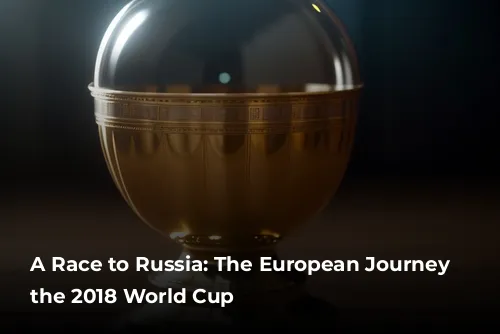In 2018, the world’s eyes turned towards Russia for the FIFA World Cup, and European teams were eager to secure their spot on the global stage. The journey began with intense qualifying matches, with 13 coveted spots up for grabs for the UEFA teams, excluding Russia, which qualified automatically as the host nation. The European qualifying process unfolded in a series of thrilling battles, with the ultimate goal of reaching the coveted World Cup. The qualifying format was announced in Vienna in 2015, setting the stage for a dynamic competition.
The Qualifying Stages: A Test of Skill and Determination
The competition kicked off in September 2016, with teams battling it out in group stages. Nine groups were formed, each filled with six teams, except for two groups that had five teams. Teams played each other twice, once at home and once away, in a round-robin format. The victors of each group were granted automatic entry into the World Cup. However, the competition was far from over. The eight teams with the best records among the runners-up from the group stage advanced to the second round, the play-offs. This nail-biting stage saw the eight contenders facing off in two-legged matches, home and away, to determine the final four spots in the World Cup.
The Rise of New Challengers: Gibraltar and Kosovo
The 2018 World Cup qualifiers witnessed the exciting debut of two new teams on the world stage: Gibraltar and Kosovo. Following their admission to FIFA in 2016, these nations were eligible to compete in the World Cup qualifiers for the first time. Their inclusion added a layer of intrigue and excitement to the competition. To ensure security, Kosovo was placed in Group I, avoiding encounters with Bosnia and Herzegovina and Serbia. Gibraltar, meanwhile, joined Group H.
A United Approach: UEFA’s Role in Organizing the Qualifiers
UEFA, the governing body for European football, played a crucial role in organizing the qualifiers. The organization centralized the scheduling of matches, adopting the “Week of Football” concept, which was successfully implemented in the UEFA Euro 2016 qualifiers. This concept involved concentrating matches within a specific timeframe, offering fans a condensed schedule of thrilling matchups. Matches were scheduled from Thursday to Tuesday, with kick-off times strategically set to maximize viewership.
The Draw: Setting the Stage for the European Showdown
The draw for the group stage was conducted in St. Petersburg, Russia, in July 2015. Teams were divided into six pots based on their FIFA World Rankings, creating a blend of seasoned contenders and ambitious newcomers. Each group consisted of one team from each pot, ensuring a diverse mix of talent and experience. The draw also considered the delicate political situation between Armenia and Azerbaijan, ensuring they were not placed in the same group.
The Final Qualification: A Triumphant Journey
The qualifying journey culminated in the exhilarating play-offs. The eight best runners-up from the group stage clashed in a series of thrilling two-legged matches. The draw for the play-offs was held in October 2017, with teams seeded based on their FIFA World Rankings. The first legs were played in early November, followed by the second legs a week later. The winners of each tie secured their places in the World Cup, marking the culmination of their long and arduous journey.
A Legacy of Success: The European Teams at the World Cup
The European qualifying process was a testament to the strength and competitiveness of European football. The teams that emerged victorious in the qualifiers represented the pinnacle of European talent, ready to take on the world stage in Russia. The World Cup in Russia would witness the best of European football, showcasing the skill, determination, and passion that defines the sport in the region.



